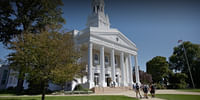- Courses span clinical, cognitive, critical, cultural, developmental, political, and psychoanalytic psychology; cognitive and affective neuroscience; and the psychology of language, music, and perception. Students are encouraged to explore psychology from multiple perspectives, since integrating a range of approaches will lead to richer investigations and the construction of new questions.
- Courses in the School of Critical Social Inquiry use ethnographic and other interpretive/participatory research methods to explore psychology in relation to society, culture, and subjective constructions of human experience.
- Courses in the School of Cognitive Science focus on observational and experimental research approaches, introducing students to a range of methodologies for exploring attention, language, memory, neuroscience, emotion, social cognition, and music perception while providing opportunities for students to become involved in the research process. Students are encouraged to formulate critical questions about the field of psychology itself and to evaluate how we come to understand psychological processes.
- Students at Hampshire are encouraged to extend their knowledge of psychology to other disciplines. While some students go on to pursue graduate study in clinical, developmental, or cognitive psychology; psychoanalysis; neuropsychology; or social work, others use psychological perspectives to inform their work in literature, the arts, and other fields.
$25,500/Yr
$25,500 /Yr
Important Dates
| Event | End Date |
| Application Deadline For Spring Intake | Nov 1, 2023 |
| Early Decision 1 Application Deadline | Nov 15, 2023 |
| Early Decision 2 Application Deadline | Jan 1, 2024 |
| Regular Decision Application Deadline | Jan 15, 2024 |
Fees & Funding
Tution & Application Fees
| Year | Year 1 | Year 2 | Year 3 | Year 4 |
| Tuition Fees | $25500 | $25500 | $25500 | $25500 |
| Total Fees | $25500 | $25500 | $25500 | $25500 |
Eligibility & Entry Requirement
- To be eligible to apply as a first-year student you must have received, or be on track to receive, a high school diploma or high school equivalency and must be 17 years of age or older at the time of enrollment.
- College coursework completed during high school often counts towards advanced standing and possibly an accelerated timeline towards graduation. If you have completed more than 15 transferable college credits, you are eligible to apply as a transfer student.
- With a GPA of 3.71, Hampshire College requires you to be above average in your high school class. You'll need at least a mix of A's and B's, with more A's than B's. You can compensate for a lower GPA with harder classes, like AP or IB classes.
Ask your question
Similar Colleges You Might Be Interested In
- Similar Colleges
No Ratings Found!!
Follow
No Ratings Found!!
Follow
No Ratings Found!!
Follow
No Ratings Found!!
Follow
No Ratings Found!!
Follow
No Ratings Found!!
Follow
No Ratings Found!!
Follow
No Ratings Found!!
Follow














